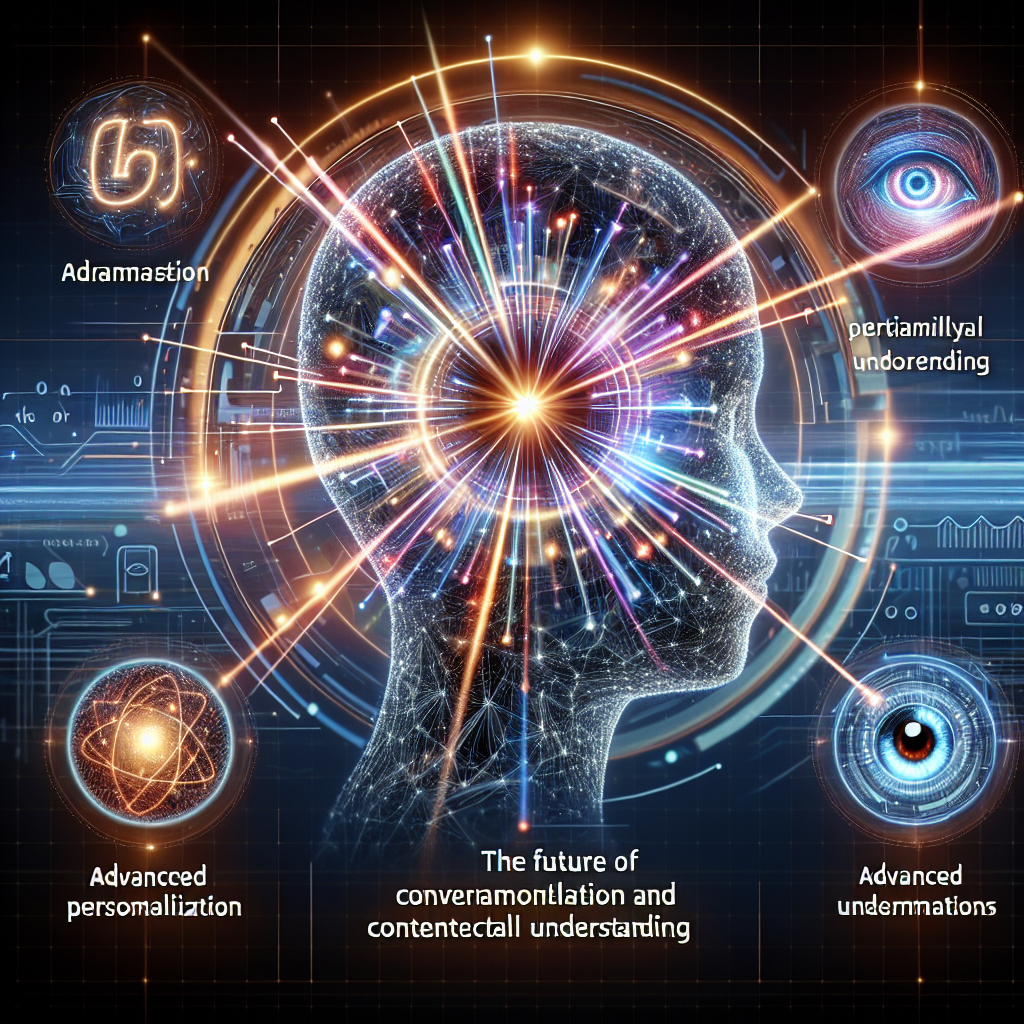The Future of Conversational AI: Advancements in Personalization and Contextual Understanding
Conversational AI, also known as chatbots or virtual assistants, has become an integral part of our daily lives. From customer service interactions to personal assistant functions, conversational AI is revolutionizing the way we communicate with machines. As technology continues to evolve, the future of conversational AI is poised to become even more personalized and contextually aware.
Advancements in Personalization
One of the key trends in the future of conversational AI is the focus on personalization. As AI algorithms become more sophisticated, they are able to better understand individual preferences and tailor responses accordingly. This means that chatbots and virtual assistants will be able to provide more personalized recommendations, suggestions, and responses based on an individual’s unique needs and preferences.
For example, a virtual assistant may be able to recommend a restaurant based on a user’s past dining preferences, dietary restrictions, and location. Or a customer service chatbot may be able to provide more personalized solutions based on a customer’s purchase history and previous interactions with the company.
Advancements in personalization will not only improve the user experience but also drive increased engagement and customer satisfaction. By providing more relevant and tailored responses, conversational AI can help businesses build stronger relationships with their customers and drive sales and loyalty.
Contextual Understanding
Another important advancement in the future of conversational AI is the ability to understand context. Contextual understanding refers to the AI’s ability to interpret and respond to a user’s messages in the appropriate context. This includes understanding the user’s intent, previous interactions, and current situation in order to provide more relevant and accurate responses.
For example, a virtual assistant may be able to understand when a user is asking for directions to a specific location based on their current location and previous search history. Or a customer service chatbot may be able to understand when a customer is frustrated based on their tone of voice and previous interactions, and respond accordingly with empathy and support.
By improving contextual understanding, conversational AI can provide more seamless and natural interactions, leading to a more satisfying user experience. This can help businesses build stronger relationships with their customers and improve overall customer satisfaction and loyalty.
FAQs
Q: What are the key challenges in developing personalized conversational AI?
A: One of the key challenges in developing personalized conversational AI is collecting and analyzing large amounts of data to understand user preferences and behaviors. This requires sophisticated algorithms and machine learning techniques to process and interpret data in real-time.
Q: How can businesses leverage personalized conversational AI to drive sales and loyalty?
A: By providing more personalized recommendations, suggestions, and responses, businesses can create a more engaging and satisfying user experience. This can lead to increased sales, loyalty, and customer satisfaction.
Q: How can businesses ensure that their conversational AI is contextually aware?
A: Businesses can improve contextual understanding by training their AI algorithms with a diverse range of data sources and feedback. This can help the AI interpret and respond to user messages in the appropriate context.
Q: What are some potential future applications of conversational AI?
A: In the future, conversational AI may be used in a wide range of applications, including healthcare, education, and entertainment. For example, AI-powered virtual health assistants may provide personalized medical advice and support, while AI-powered educational assistants may help students learn and study more effectively.
In conclusion, the future of conversational AI is bright, with advancements in personalization and contextual understanding driving improved user experiences and business outcomes. By leveraging these advancements, businesses can create more engaging and satisfying interactions with their customers, leading to increased sales, loyalty, and customer satisfaction. As technology continues to evolve, the possibilities for conversational AI are endless, and we can expect to see even more innovative applications in the years to come.

